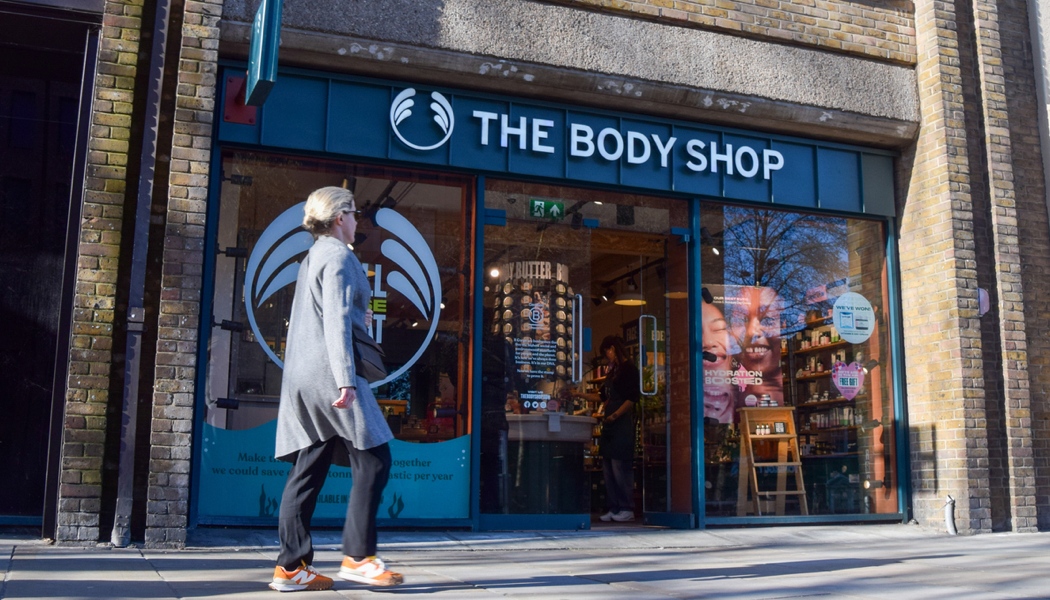Last week’s announcement that the UK arm of The Body Shop was going bankrupt came as a shock in the country, where the brand was founded almost 50 years ago. Since then, the bad news has continued. Some of The Body Shop’s mainland European businesses have begun shutting down. The German stores has entered into administration and the Belgian, Luxembourg, Austrian and Irish subsidiaries might be next.
A model shaken up by its competitors
If things are accelerating today, the difficulties are not new for the British channel.
Founded in 1976 in Brighton, in the south of England, by entrepreneur Anita Roddick, the brand was a pioneer of environmentally friendly cosmetics, not tested on animals and a supporter of fair trade. But since then, the EU and many other countries have banned the testing of cosmetics on animals, natural or organic cosmetics brands have developed and innovative models focusing on solid products and packaging reduction have emerged.
“In the 1980s, The Body Shop was the place to go for young shoppers to splash out on fresh scented bubbles and beauty ranges, with a deep environmental conscience and a focus on social justice and conserving nature,” Susannah Streeter, analyst at Hargreaves Lansdown told AFP. In the meantime, competitors like Lush, L’Occitane, Neal’s Yard, Aesop and a multitude of indie brands have shaken up its model and gained market share.
Purchased by L’Oréal in 2006, when it was at a staple of beauty routines in many countries, the brand was acquired in 2017 by Brazil’s Natura. However, the South American beauty giant then went on to buy Avon in 2019, a badly timed deal that left it with a hefty debt pile as the Covid pandemic hit and then interest rates began to rise around the world.
Too many unprofitable markets
When Natura decided to refocus on its Latin American business, buyers did not rush, despite a sale price significantly lower than what had been paid to L’Oréal. Indeed, at the time of the acquisition by Aurelius, The Body Shop had 2,500 stores in more than 70 countries, but many of these markets were unprofitable.
According to people close to the matter interviewed by the Financial Times, despite significant losses in 2022, operations in the United Kingdom were deemed as the most attractive. Aurelius was also confident about businesses in Canada and Australia. However, damp revenues during the crucial festive period would have overturned the financial prospects, leading the UK business to the slide into administration!
What is Aurelius looking for?
The investment firm would therefore have made a serious assessment error when acquiring The Body Shop. And Peter Wood, who was UK managing director of the firm, and the dealmaker behind Aurelius’s acquisition of the brand has exited the business, The Telegraph reported.
According to The Times, the German firm has solidified its position as the brand’s top creditor before filing for bankruptcy. Shortly after buying the business, Aurelius made loans to the group that were secured against intellectual property assets and shares in its (profitable) Canadian arm.
“Just before Christmas, Aurelius released a statement saying they would ‘re-energise the business’ and ‘deliver the next chapter of success’. Less than three months later they are putting the brand into liquidation and look like they are first in line to be paid. Did they ever intend to grow the business?,” questioned Labour MP Siobhain McDonagh.
At the end of January, Aurelius announced the sale of part of The Body Shop’s Europe and Asia business to what they described as a “family office”, a term that usually refers to the management of personal wealth. The buyer appeared to be Alma24, a company that was incorporated on 25 January 2024 in London. According to information from The Guardian, Alma24 is controlled by Friedrich Trautwein, an executive who has close links to Aurelius. The exact scope of the acquisition has been the subject of conflicting information; subsidiaries in continental Europe and Ireland would be affected, as well as Japan. The latest news is that France was not included in the operation, for legal reasons. It is also unclear with the subsidiary in the Netherlands is included in the deal.
Within subsidiaries in mainland Europe, the lack of transparency on strategy is rising concerns.
“Aurelius’ approach to its investments, demonstrated by the recent swift liquidation of LloydsPharmacy in January 2024 – that was once the second biggest pharmacy chain in the UK – just two years after its acquisition, raises concern about a pattern of behaviour that suggests a preference for short-term profit strategies over the sustained stability of acquired enterprises,” alerted a source pointing tactics that would aim to shift the cost of restructuring to public finances.
Restructuring or sale of assets?
In any case, the future of the retailer will be decided in the United Kingdom, where the company is headquartered, where are its roots and from where a large part of the products marketed by the subsidiaries around the world are delivered. The administrators from accounting firm FRP Advisory said they would “consider all options to find a way forward for the business and will update creditors and employees in due course.”
The mission of administrators is to assess the financial situation and offers from potential buyers in order to find the best options to save jobs, but they will particularly focus on ensuring as much money is recouped as possible to return to creditors. And it is not excluded that Aurelius buys back The Body Shop after having slimmed it down.
According to sources familiar with the situation, the brand is expected to survive in some form, but with far fewer shops. Several branches are also expected to be closed, in particular in Europe.


